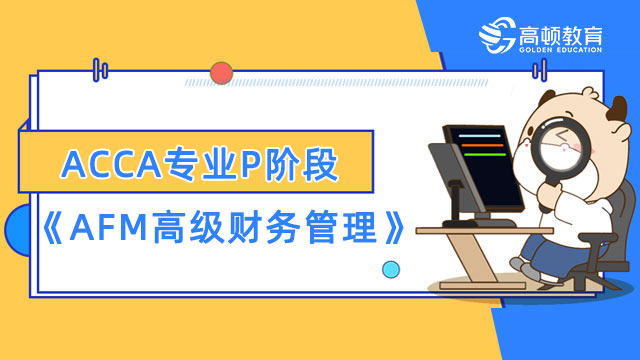2015重点回顾:ACCA考试《专业会计师P1》复习详解5
来源:
高顿网校
2015-02-11
漫漫考试路,各位考生,您准备好了吗?如何快乐高效的学习?高顿网校为广大学员提供2015年ACCA考试网络课程,请各位考生紧跟网校名师的步伐尽快进入备考复习,让高顿与您共同努力,2015年考试顺利通过!祝您梦想成真!免费听课》
Board committee
Role & Purpose of internal audit committee
(1) Consisting entirely of independent non-executive directors with atleast one has had relative accounting or financial experience.
(2) Reviewing financial statements and systems includingquarterly/interim/annual accounts, financial reporting and budgetary systems.
(3) Keeping liaison with external auditors, includingappointing/removing of the external auditors, considering the threats toexternal auditor independence, discussing the scope of external audit, acting asa forum between external auditors, internal auditors and financial director andhelping external auditors to obtain the information.
(4) Reviewing internal audit through the following aspects: standards,scope, resources, work plan and reporting.
(5) Reviewing internal control through the following aspects: theadequacy of internal control system (focusing on control environment), legalcompliance/ethnic/codes of conduct, risk of fraud, and company’s annualstatement on internal control.
(6) Reviewing risk management through the following aspects: confirmingthere is a formal risk management policy in place, confirming risk managementis updated to reflect current position and strategy, and reviewing thearrangements in order to ensure that responsibilities are aware by manager andstaff.
(7) Involving in implementing and reviewing one-off investigation.
Role & Purpose of remunerationcommittee
(1) Consisting of independent non-executive directors.
(2) In charge of determining general remunerations policy on executivedirectors.
(3) Determining specific remuneration package for each director.
(4) Reporting to the shareholders about remuneration policy andpackages of individual directors.
Role & Purpose of nominationcommittee
(1) Overseeing the process for board appointments and make recommendationsto the board.
(2) Reviewing regularly the structure, size and composition of theboard. Ensure appropriate management diversity to board composition.
(3) Evaluating regularly the balance of skills, knowledge andexperience of the board. Consider the balance between executive director andnon-executive directors.
(4) Consider issues relating to re-election and reappointment ofdirectors.
Role & Purpose of riskcommittee
(1) Approving the organization’s risk management strategy and riskmanagement policy.
(2) Reviewing reports on key risks prepared by business operatingunits, management and the board.
(3) Monitoring overall exposure to risk and ensuring it remains withinlimits set by the board.
(4) Assessing the effectiveness of the organization’s risk managementsystems.
(5) Providing early warning to the board on emerging risk issues andsignificant changes in the company’s exposure to risks.
(6) Reviewing the company’s statement in conjunction with the auditcommittee, on internal control with reference to risk management.
Director’sremuneration
Remuneration policy& strategy
(Remuneration policy)
(1) Pay scales applied to each director’s package.
(2) Proportion of different types of reward within each package.
(3) What proportion of rewards should be related to measurableperformance.
(4) Transparency of directors’ remuneration.
(5) Period within which performance related elements become payable.
(Remuneration strategy)
(1) Board is motivated to strive to increase performance and adequatelyrewarded when performance improvements are achieved.
(2) Board is seen to be paid appropriately for their efforts andsuccess, and not be criticized for excessive pay.
(3) Remuneration strategy should create a link to corporate strategy.To what extent it links is a measure of the remuneration strategy’s success.
(4) Remuneration strategy should consider problems such as choice ofwrong measure, excessive focus on short-term results.
(5) Remuneration strategy should consider encouraging long-term loyaltythrough share purchases schemes, the availability of company resources, morebenefit in kind for lower basic salary.
Remuneration packages
(Basic salary)
Is not related to performance, but is determinedthrough benchmarking peer group salary, which how much other companies might beprepared to pay.
(Performance related bonuses)
It is elements of remuneration dependent onthe achievement of some of performance measurement criteria, such as cash bonus.
(Shares & share options)
(1) Share options are the most common form of long-term incentivescheme. It gives directors the right to buy shares at a specified exerciseprice over a specified time period in the future. If the stock price rises sothat it exceeds the exercise price by the time the option can be exercised,directors can buy at lower price than market price and then might sell it at aprofit.
(2) Share options can be used to give the executive the incentive tomanage the company in sch a way that share price rises so that it alignsmanagement and shareholder interests. This alignment would, in theory, overcomethe agency problem.
(Benefits in kind & Pensions)
(1) Benefits in kind are various non-wage compensations provided todirectors and employees in addition to their normal wages or salaries such aslife insurance, company car scheme, holidays, and loans.
(2) There may be separate pension scheme available for directors athigher rates than for employees.
Other Issues associated with directors’ remuneration
(Legal)
(1) Considering compensation for the directors in the case of earlytermination.
(2) Aiming to avoid rewarding poor performance.
(Ethical)
(1) Public reaction to high profile corporation failure where directorswere receiving what was perceived as excessive remuneration in relation totheir performance.
(2) Recent changes to best practice disclosure requirements on boardstructure and executive pay.
(3) Incorporating business ethics into performance-related remunerationsystem.
(Competitive)
(1) It is vital for a company to have a proficient, motivated board ofdirectors working for the interest of shareholders.
(2) Shareholders should provide the company with resources to recruitand retain directors under competitive terms.
(Regulatory)
(1) Directors need to submit a remuneration report to members at theannual general meeting each year.
(2) The report must provide full details of directors’ remuneration,and should be clear, transparent and understandable to shareholders.
(3) When an executive director serves as a non-executive directorelsewhere, the remuneration report should state whether or not the remunerationof that director will retain and what the remuneration is.
(4) The increasingly regulatory environment reflects the additionaldemand on and responsibilities of directors, and the heightened externalscrutiny to the remuneration of directors.
ACCA考试的报名时间、考试动态,高顿网校会在*9时间通知大家,敬请关注高顿网校*7考试动态【提示:“Ctrl+D”收藏此页面】。
精彩推荐:
| 课程专业名称 | 讲师 | 试听 | |
 | ACCA 全维度网课体验课程 | 高顿名师 |  |
 | ACCA网课全科卡(8.2折) | 高顿名师 |  |
版权声明:本条内容自发布之日起,有效期为一个月。凡本网站注明“来源高顿教育”或“来源高顿网校”或“来源高顿”的所有作品,均为本网站合法拥有版权的作品,未经本网站授权,任何媒体、网站、个人不得转载、链接、转帖或以其他方式使用。
经本网站合法授权的,应在授权范围内使用,且使用时必须注明“来源高顿教育”或“来源高顿网校”或“来源高顿”,并不得对作品中出现的“高顿”字样进行删减、替换等。违反上述声明者,本网站将依法追究其法律责任。
本网站的部分资料转载自互联网,均尽力标明作者和出处。本网站转载的目的在于传递更多信息,并不意味着赞同其观点或证实其描述,本网站不对其真实性负责。
如您认为本网站刊载作品涉及版权等问题,请与本网站联系(邮箱fawu@gaodun.com,电话:021-31587497),本网站核实确认后会尽快予以处理。
点一下领资料
【整理版】ACCA各科目历年真题
真题高频考点,刷题全靠这份资料
下载合集
acca全科学习思维导图
梳理核心考点,一图看懂全部章节
下载合集
2023年acca考纲解析
覆盖科目重难点,备考按照计划走
下载合集
acca备考 热门问题解答
- acca考试怎么搭配科目?
-
建议优先选择相关联的科目进行搭配报考,这样可以提高备考效率,减轻备考压力,1、F1-F4:为随时机考科目,难度较低,这里可以自行随意选择考试顺序。2、F5-F9:如果你的工作的和财务会计或者审计有关、或者你比较擅长财务和审计的话,推荐先考F7和F8。你可以选择一起考ACCA考试科目F7和F8或者先考F7(8)再考F8(7),这就要取决你一次想考几门。3、P阶段:选修科目中,建议企业首选AFM!第二部分科目进行选择,如果AA和SBR掌握学生更好,可以通过选择AAA,如果SBL掌握的好,可以自己选择APM。
- acca一共几门几年考完?
-
acca一共有15门考试科目,其中有必修科目和选修科目,考生需要考完13门科目才能拿下证书。
- acca一年考几次?
-
acca一年有4次考试,分别是3月、6月、9月和12月,分季机考科目是采取的这类四个考季的模式,而随时机考则是没有这方面的时间规定限制,可以随报随考。
- acca的含金量如何?
-
ACCA证书的含金量是比较高的,从就业、能力提升、全球认可等角度来说,都是比较有优势的证书,其含金量主要表现在以下几个方面:1、国际化,认可度高;2、岗位多,就业前景好;3、缺口大,人才激励。
严选名师 全流程服务
其他人还搜了
热门推荐
-
acca专业阶段考试科目有哪些?究竟都考些什么? 2023-04-23
-
accaP阶段科目考完需要多久?速戳了解! 2023-03-28
-
ACCA高级课程是哪几门?和基础课程比难度怎么样? 2023-03-17
-
sbr和sbl哪个难?accaP阶段先考哪个? 2023-03-16
-
accaP阶段报名费是多少?一文介绍全了! 2023-03-14
-
accaP阶段有哪些科目?各科目详细介绍! 2023-03-14
-
accap阶段考试顺序是怎样的?选修科目怎么选? 2023-03-10
-
acca考试科目:《ATX高级税务》重点详解! 2023-03-06
-
acca考试科目:《APM高级业绩管理》重点详解! 2023-03-06
-
acca考试科目:《AFM高级财务管理》重点详解! 2023-03-06
-
accap阶段有效期是多久?需要几年内考完? 2023-03-01
-
accaP阶段选修选哪两门?各科难度对比来了! 2023-02-28
-
2023年acca的sbl怎么学?点击查收备考攻略! 2023-02-24
-
acca考试p阶段科目题型,附各科分值参考! 2023-02-23
-
accap阶段要考几门?重难点是什么? 2023-02-10
-
accap阶段要考几门?重难点是什么? 2023-02-10
-
accaP阶段科目怎么搭配?先考哪门? 2023-02-09
-
ACCA专业P阶段:《AFM高级财务管理》复习攻略 2023-01-30
-
accap阶段选哪两门?考试重难点介绍! 2023-01-17
-
acca考试科目:《AAA高级审计与鉴证》题型及重点! 2023-01-17
-
acca专业阶段考试难度分析,选修科目报考指南来了! 2023-01-12
-
accap阶段报考顺序推荐,先报哪个好? 2022-12-15
-
ACCAp阶段一次最多考几门?成绩有效期是多久? 2022-08-24
-
ACCA的p阶段需要备考多久才够?考试难度怎么样? 2022-08-18
-
ACCAp阶段考试需要考几门?考试时间是哪天? 2022-08-15
-
ACCA考试P阶段考几门?P阶段成绩有效期是多久? 2022-08-12
-
ACCAP阶段科目难度高吗?P阶段是机考吗? 2022-08-10
-
ACCA最后四门难考吗?通过率怎么样? 2022-07-19
-
ACCA英语不好怎么办?怎么提高英语? 2022-07-14
-
ACCA机考报名时间是什么时候?怎么报考? 2022-07-14
 更多服务
更多服务









































